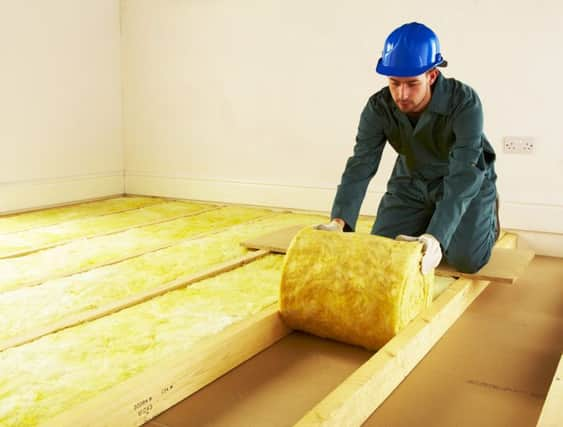1.8 million homes in Scotland failing to meet energy efficiency target


Ministers want all homes north of the Border to reach certain standards by 2040 as part of its ambitious Energy Efficient Scotland (EES) plan.
But 1.8 million homes failed to reach the EPC C benchmark in 2016, which the Scottish Government wants all domestic properties to achieve by 2040.
Advertisement
Hide AdAdvertisement
Hide AdThis equates to around 66,000 buildings requiring major improvements each year over the next two decades. The report, carried out by KPMG on behalf of the Scottish Government, described this as a “significant challenge”.
Energy performance certificates (EPC) were introduced in 2009 to assess the amount of energy a property requires for heating, ventilation, and, where applicable, energy generated through renewables.
An EPC gives a property an energy efficiency rating from A (most efficient) to G (least efficient).
Just 34 per cent of owner-occupied homes in Scotland were classed EPC C in 2016, while the figure for privately rented properities was 37 per cent.
“Owner-occupied homes are unique in that the people initiating building works and the people living in the house before, during and after the retrofitting process takes place are the same,” the report found.
“A 2014 study on what motivates owner occupiers to initiate retrofit works suggests that, in most instances, owner-occupiers do not have the specific technical knowledge or an interest in retrofitting.”
Energy Efficient Scotland was launched by Nicola Sturgeon in May 2018.
Speaking at the time, she said the programme highlighted the Government’s “clear commitment to ensuring that we tackle fuel poverty and reduce greenhouse gas emissions - helping those on low incomes as well as protecting our environment.”
Advertisement
Hide AdAdvertisement
Hide AdGraham Simpson, Scottish Conservative housing spokesman, said: “We have been calling for the SNP to be far more ambitious when it comes to energy efficiency.
“However, as this report makes clear, it is a massive challenge to get to where we want to be.
“As many as 60,000 homes every year for the next 24 years need to have work done.
“That’s a huge programme and ministers must now set out how they plan to achieve that - particularly when it comes to the owner-occupied sector.”
The Scotsman has asked the Scottish Government for comment.
A Scottish Government spokesperson said:
“We are committed to transforming the energy efficiency of Scotland’s domestic and non-domestic properties, and to make all of our homes and places of work warmer, greener and more efficient, spending a total of £500 million on energy efficiency investments in this session of Parliament. Only this week we announced a further investment of at least £38m in our Warmer Homes Scotland programme, which helps those on low incomes to improve their homes.
“This research has been conducted independently of the Scottish Government and provides an impartial view of the options. We are carefully considering the findings, alongside our partners in local government. Once we have fully considered the report and its implications, we will set out our proposed next steps to Parliament and our stakeholders.”